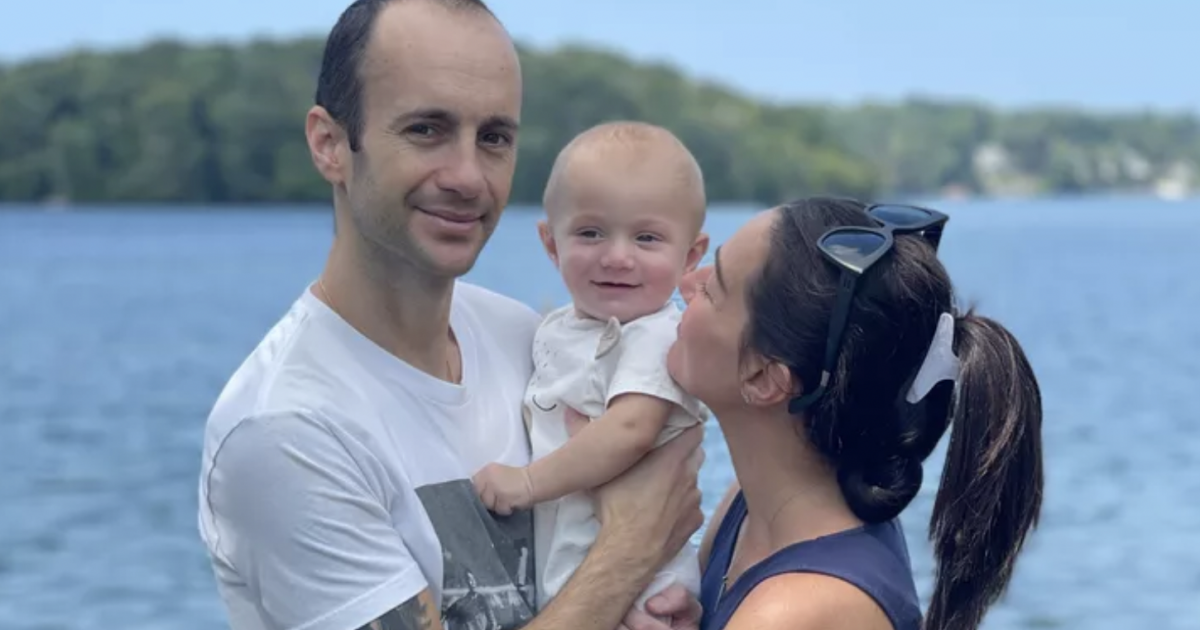Getting Access to Groundbreaking Cancer Treatments
- A New York father was finally granted approval to a groundbreaking surgery to treat a rare form of abdominal cancer called pseudomyxoma peritonei (PMP).
- Anthony Di Laura made the news previously with the story of he and his wife’s miracle natural conception after he began rigorous cancer treatment.
- Di Laura’s insurance company finally approved organ donor surgery after months of backup.
- Clinical trials, which test out experimental drugs and treatments, are crucial to research, especially for diseases that are difficult or impossible to treat.
Anthony Di Laura, 35, of New York, was diagnosed with cancer in August 2020 after experiencing stomach pain for a few weeks. He made headlines previously when discussing how he and his wife were miraculously able to conceive their second child after Di Laura had already begun a rigorous treatment program.
Read MoreOne ‘miracle’ down
All the while, and it came as a surprise to both the couple and their doctors, they had naturally conceived a second child something doctors told them there was a “slim to none” chance of happening after the chemo. With one miracle behind them, the family is now hoping a groundbreaking new organ transplant surgery which has only been performed in the U.S. once will save Di Laura’s life. The surgery, which would be performed at the Cleveland Clinic would replace Di Laura’s stomach, small and large intestine, colon, gallbladder, and spleen. However, his insurance company initially refused to pay for the procedure which will cost between $500,000 and $1 million claiming there were studies to show it was not safe. Blue Cross Blue Shield finally agreed to pay just last week, according to the Daily Mail, and now Di Laura is on a waiting list.“The Cleveland Clinic has given Anthony a newfound desire for life,” his wife, Jackie Cucullo told Insider. “He has become invested through the hopefulness and positive attitude of the team, and I saw that spark back in him.”
Experimental cancer treatments
In Di Laura’s case, his doctors had trouble finding a standard treatment that worked for him, which is why the family had to jump through hoops to get his insurance company to cover a new treatment technique. However, there are many cases where people with cancer want to try drugs or treatments that have not gone through the full federal approval process yet and they can get access to some of those through clinical trials.
Clinical trials give patients access to new drugs that are in the development process. Participants are followed closely by a health care team to monitor for safety and efficiency. If you are interested in enrolling in a clinical trial, SurvivorNet has a Clinical Trial Finder tool to help you locate one.
Getting access to these new therapies can be life-saving, Dr. Ben Neel, Director of the NYU Perlmutter Cancer Center, explained to SurvivorNet during a previous conversation on experimental therapies.
“If I were a cancer patient with a widely spread metastatic cancer, I would want to be on a clinical trial. There is an incredible bevy of new therapies that are being developed by the biopharmaceutical industry in the United States and elsewhere,” Dr. Neel explained, noting many of these therapies will fail however, there is always hope for groundbreaking successes.
Dr. Ben Neel, Director of NYU’s Perlmutter Cancer Center, explains why clinical trials are so crucial.
“…Even if you get the control arm of a trial, you’re actually likely statistically to have a better outcome. That’s number one. And number two is, for most patients who are going to be on a clinical trial in a major academic medical center, these are patients who have metastatic disease. This is a tumor that has already spread beyond its initial location, and is occupying different sites in the body.
“And in general those tumors, with few exceptions like melanoma with immunotherapy, those tumors are generally incurable with current therapy, but within that bevy of therapies, there are going to be some dramatic successes. And the only way that you can get access to many of these drugs, especially the early phase drugs, is in the context of a clinical trial.”
Questions to Ask Your Doctor
- Is there an experimental drug that may work for my condition?
- Will I be eligible to enroll in a clinical trial?
- How would I handle the clinical trial conversation with my insurance company?
Learn more about SurvivorNet's rigorous medical review process.


